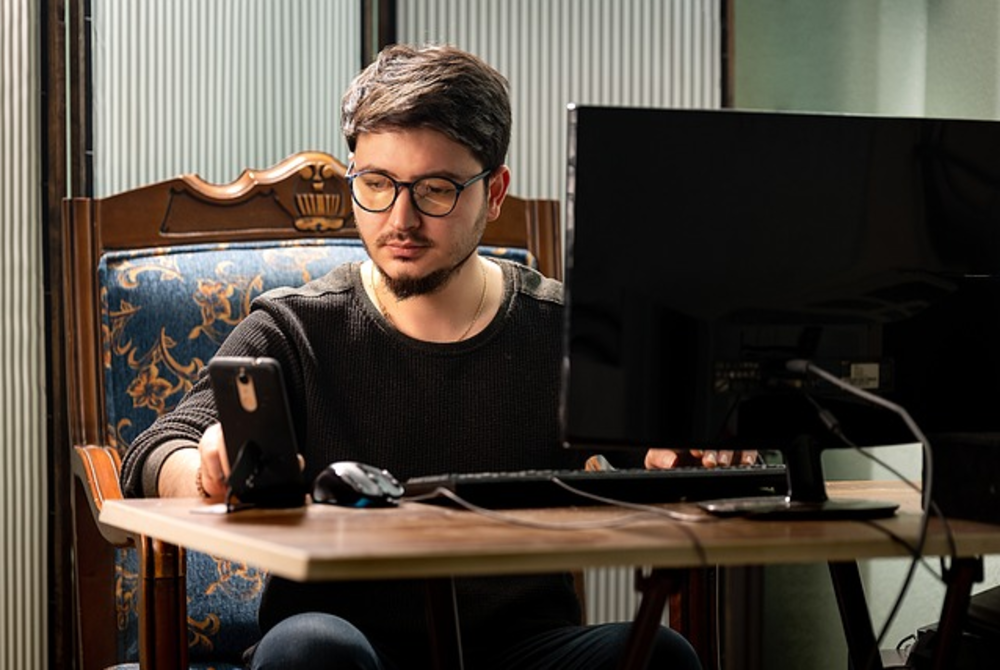AI technology complements fardhu kifayah
NURULFATIHA MUAH
An image of an elderly woman on a skateboard went viral recently, with many finding it illogical and senseless.
However, when learned that the image was generated by artificial intelligence technology or artificial intelligence (AI), social media users praised and admired the sophistication of the application.
Despite its advancement, it incites anxiety as people worry if the technology was misused. The scariest thing is when it brings about bad consequences for humans.
Can AI benefit Muslims? How do we overcome its distortion and what is Islam's view on it?
To shed light on the matter, Sinar Islam Plus interviewed Torum Technology Sdn Bhd (Torum Technology) AI senior engineer Dr Fairoza Amira Hamzah.
She explained that AI technology facilitates many work processes.
One of them involves performing haj. The Tabung Haji Board is developing an application to facilitate the procedure for Muslims to fulfil the fifth pillar of Islam, she said.
"If previously, we made the visa application manually but with AI, all business efficiency will be improved.
"Such a system does not only benefit Muslims, but the whole world," she said.
As Muslims, she explained, we not only play the role of 'abid (worshipper), but also become caliphs (vicegerent) on this Earth.
"Simply put, we can't just focus on the Hereafter and ignore the worldly life. Both need to go hand in hand.
"Muslims need to venture into this field so that there is no issue of bias there besides balancing between their two roles," she said.
In short, looking at its comprehensive function, AI actually helps Muslims complement fardhu kifayah (collective obligation).
Commenting further, the PhD graduate of Information Science and Control Engineering at Japan's Nagaoka University of Technology explained that AI in simple terms 'makes a tool have intelligence'.
"Just as we can talk, ask, answer questions, understand and the like, so can AI.
"AI got the answer data we asked earlier because it was taught all these things and it understood them. So, all inquiries, searches or whatever desired can be well interpreted by AI," she said at her office in Kuala Lumpur recently.
Going through its historiography, AI has passed six decades of its age.
According to Dr Fairoza, it started back in the 1950s. At that time, it was in the form of fuzzy logic (computers can imitate human intelligence).
"Now, many forms of AI can be seen such as ChatGPT, Midjourney and others. In fact, there is an AI that can produce its own face and something like that," Dr Fairoza, who is in charge of managing AI in all Torum Technology's social media platforms to improve the company's operational efficiency, said.
Although AI is not a new technology, Dr Fairoza, who was directly involved in the preparation of the Malaysian AI roadmap, explained that it has only become popular in the last 10 years in Malaysia.
"It can be said that there is AI everywhere now. For example, Torum Technology operates a social media platform for cryptocurrencies that has over 230,000 users. It is just like any other social networking platform.
"When we write a post, then people 'spam' or use offensive words, of course we don't like it, so this is where AI functions to help filter 'spam' earlier on social media.
"In the financial field, for example, AI helps ensure that no fraud occurs," she explained.
What's more recently, the world was surprised by the victory of a German-born photographer who submitted a work with the help of AI at the Sony World Photography Awards 2023 competition.
Although the owner admitted to using AI and rejected the victory, the issue reflects the negative side of the use of the technology.
In that regard, Dr Fairoza has her own view.
She explained that it is just a small matter. Even in a sense, using AI also requires wisdom so that a beautiful image will be produced as shot through the lens of a professional photographer.
"Not everyone has that kind of imagination even if they both use AI. Of course, the photographer used his ideas to get great results.
"If I was a jury, I would consider 50-50 which is the AI idea and technology used," she said while explaining that the government is preparing certain policies and ethics to deal with the problems arising from AI.
Most importantly, she said, everyone needs to be aware.
"If someone uses AI in doing a task like photography earlier, he needs to declare it," she said.
Addressing one of the questions, Dr Fairoza replied: "For me, AI will not take away human jobs, it will just make us a little lazy.
"However, if there is something that makes it easier, surely we still need to think and imagine like the case of the photographer earlier to produce beautiful pictures and be able to win.
"Perhaps, there are some jobs that will use less human power. For example, ChatGPT can write posts on social media. However, humans still need to edit and add what is appropriate so that it is not awkward and looks like a computer language.
"The fact is, as smart as AI is, humans are smarter. No one can match the power of Allah SWT who created us and the wisdom of His grace."













